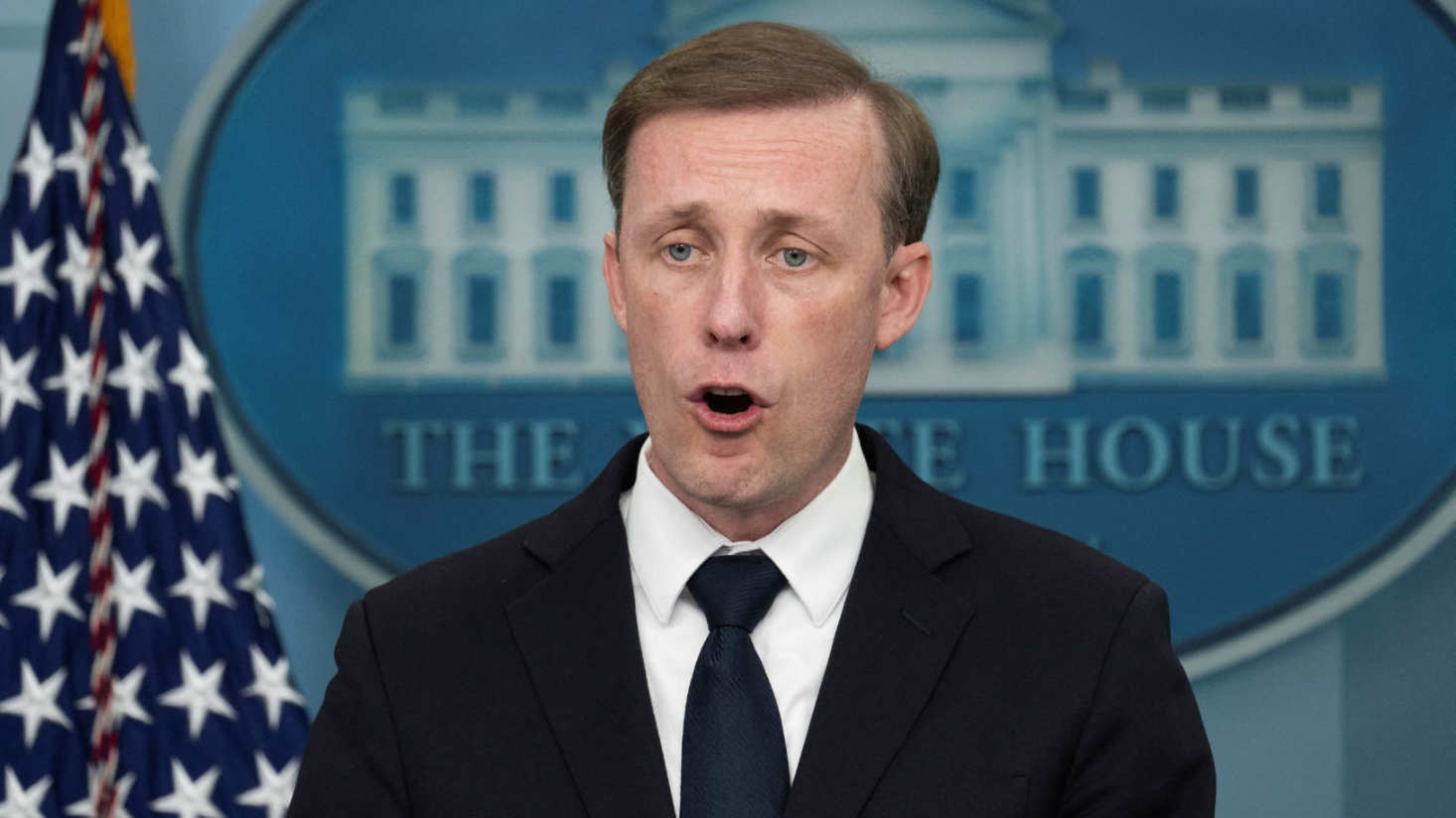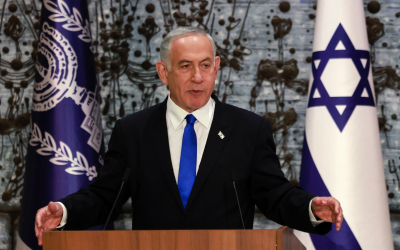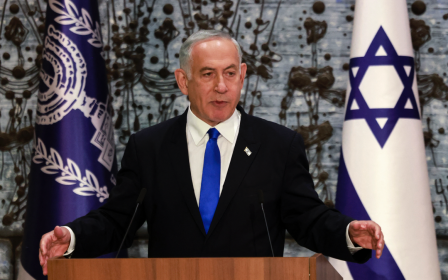Israeli officials set to discuss Iran and Saudi Arabia with US national security advisor: Report

Senior Israeli officials are set to travel to Washington next week as the Biden administration looks to enhance cooperation on the Iranian nuclear deal and normalisation with Saudi Arabia.
Ron Dermer, the Israeli minister for strategic affairs, and national security advisor Tzachi Hanegbi are expected to meet with White House national security adviser Jake Sullivan and other senior officials, Axios reported on Thursday, citing four Israeli and US officials.
The high-level visit comes as Israel’s ties with Washington face some strain. Prime Minister Benjamin Netanyahu's dependence on far-right lawmakers in his government has put Washington in an awkward position.
US President Joe Biden made a rare public foray into Israel’s domestic politics in March when he called for a compromise to Netanyahu’s contentious plans to overhaul Israel’s judiciary. The proposed judicial law sparked massive protests in Israel and elicited rebukes from American Jews, including lawmakers in Biden’s party.
Despite the tensions, Israel remains the US’s closest Middle East ally. The country receives around $3.8bn a year in military aid from Washington. Earlier this month, Axios reported that the US had asked Israel to engage in "unprecedented" joint military planning against Iran.
Tensions with Iran have simmered amid collapsed efforts to revive the 2015 nuclear deal.
Israel lobbied against the agreement at the time, but in a sign of its continued concern about Washington’s efforts, Israeli officials reportedly questioned whether closer military cooperation with the US could tie their hands from unilaterally striking Iran.
'Confrontation inevitable'
On Tuesday, the chief of staff for the Israeli military, General Herzi Halevi, said Iran’s uranium enrichment was more advanced than ever before and warned that Israel was preparing "for a situation where a confrontation will be inevitable".
Against the backdrop of rising tensions, Israel is likely to welcome reports that the Biden administration plans to renew efforts to coax Saudi Arabia into normalising relations.
President Joe Biden made closer ties between the two US partners a key feature of his visit to Saudi Arabia in July when he unveiled a plan to transfer two Red Sea islands from Egypt to Saudi Arabia. The agreement required Israel’s approval due to Cold War-era security agreements and led to Riyadh agreeing to open its airspace to Israeli flights.
Those efforts, however, have been eclipsed by Saudi Arabia’s recent move to restore ties with Iran, Israel’s arch-rival. The deal, which was brokered by China, left Washington out in the cold and raised concerns in Israel about being isolated in the region.
On Thursday, Newsweek quoted a senior Israeli military commander saying that "Iran is everywhere", and that the possibility of war was “getting bigger and bigger”.
"There’s more chance of a large-scale war than ever before, that is, in the last 20 or 30 years,” Amir Avivi, a brigadier general in the Israeli army said.
But it's unclear whether Saudi Arabia will agree to establish relations with Israel. The move would hand President Joe Biden a major foreign policy victory ahead of the 2024 US elections. Ties between the US and Saudi Arabia have sunk to historic lows under Biden's presidency over differences on energy policy, the war in Yemen, and human rights.
In January, Saudi Arabia's foreign minister said the kingdom would not normalise relations with Israel until Palestinians are granted statehood.
In March, the Wall Street Journal reported that Riyadh told Washington it would normalise ties with Israel in exchange for new security guarantees and help with its civilian nuclear programme, steps that are likely to face resistance in congress.
Middle East Eye propose une couverture et une analyse indépendantes et incomparables du Moyen-Orient, de l’Afrique du Nord et d’autres régions du monde. Pour en savoir plus sur la reprise de ce contenu et les frais qui s’appliquent, veuillez remplir ce formulaire [en anglais]. Pour en savoir plus sur MEE, cliquez ici [en anglais].





